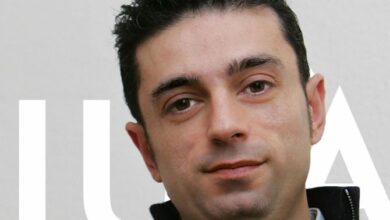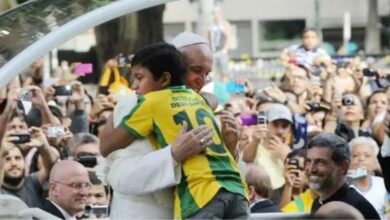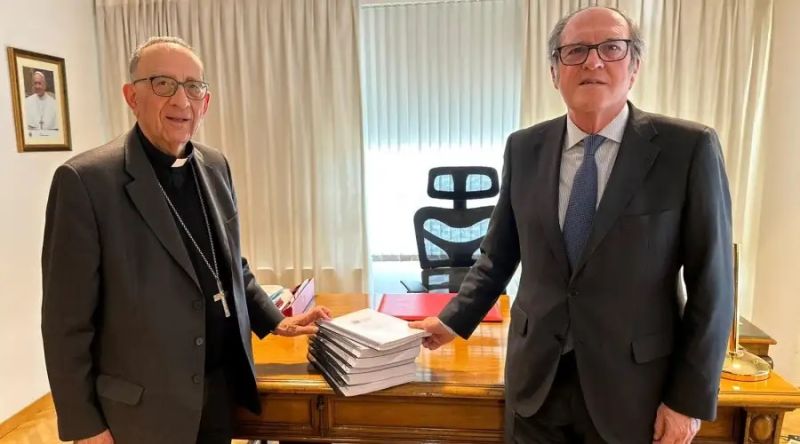Pope Francis: Small ideological groups oppose same-sex blessings; Africa a ‘special case’
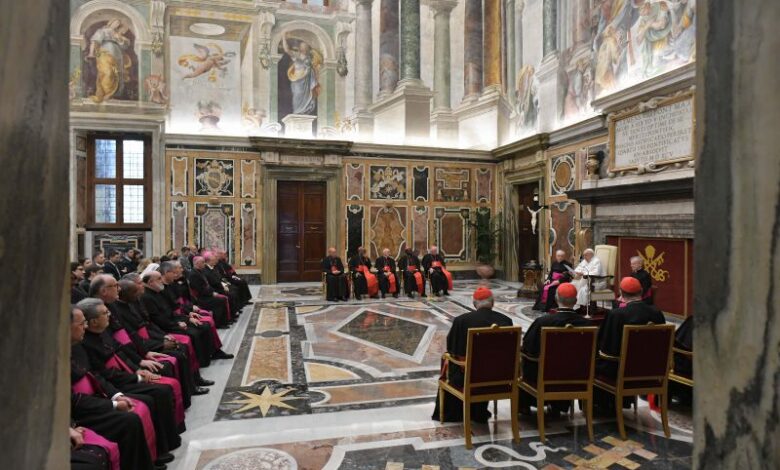
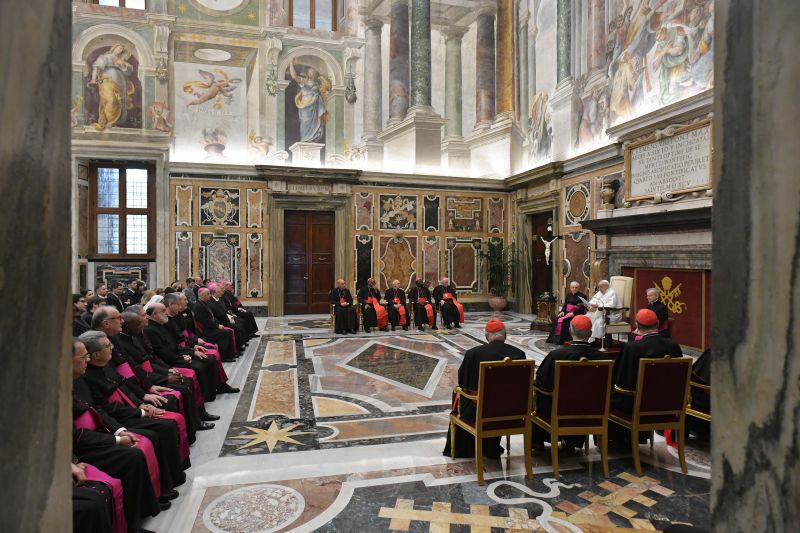 Pope Francis meets with members of the Vatican’s Dicastery for the Doctrine of the Faith (DDF) on Friday, Jan. 26, 2024. / Credit: Vatican Media
Pope Francis meets with members of the Vatican’s Dicastery for the Doctrine of the Faith (DDF) on Friday, Jan. 26, 2024. / Credit: Vatican Media Washington, D.C. Newsroom, Jan 29, 2024 / 14:40 pm (CNA).
Pope Francis suggested that the opposition to the Vatican’s approval of nonliturgical blessings for same-sex couples mostly comes from “small ideological groups” with the exception of Africa, which he said is “a special case.”
“Those who vehemently protest belong to small ideological groups,” Francis said in an interview on Monday with the Italian newspaper La Stampa, according to an English translation from the Church-run Vatican News.
Regarding the bishops in Africa, who have expressed some of the strongest criticisms of such blessings, the pontiff said they are “a special case” because “for them, homosexuality is something ‘ugly’ from a cultural point of view; they do not tolerate it.”
The Dicastery for the Doctrine of the Faith (DDF), led by Cardinal Víctor Manuel Fernández, published a declaration on Dec. 18, 2023, titled Fiducia Supplicans, which prompted the backlash. The declaration permits “spontaneous” pastoral blessings for “same-sex couples” and other couples in “irregular situations” but does not allow liturgical blessings, recognition of civil unions, or any actions that would make the blessings appear like a marriage.
Bishops around the world have been divided on how to implement the document or whether to implement it at all.
The Symposium of Episcopal Conferences of Africa and Madagascar, which represents all of the African bishops’ conferences, is refusing to bless same-sex couples. In a statement, it said such blessings could not be carried out on the continent “without exposing themselves to scandals.”
The bishops’ conferences in Hungary and Poland similarly rejected any blessings for same-sex couples, as have various other bishops around the world.
Alternatively, the heads of the bishops’ conferences in other countries, such as Austria, Germany, and Argentina, have embraced the declaration and the opportunity to bless same-sex couples. Some other bishops’ conferences, such as the United States, have accepted the declaration but put a strong emphasis on ensuring that such blessings are not confused as a change in Church teaching.
Francis, in his interview, dismissed the idea that this division could spark a schism in the Catholic Church.
“In the Church, there have always been small groups that manifest reflections of a schismatic nature,” the pope said. “One must let them carry on and pass away… and look ahead.”
Francis said that he trusts that “gradually, everyone will be reassured about the spirit of the declaration,” which he said “aims to include; not divide.” He added that the declaration “invites us to welcome and then entrust people, and to trust in God.”
“The Gospel is to sanctify everyone,” the pontiff said. “Of course, there must be goodwill. And it is necessary to give precise instructions on the Christian life (I emphasize that it is not the union that is blessed, but the persons). But we are all sinners: Why should we make a list of sinners who can enter the Church and a list of sinners who cannot be in the Church? This is not the Gospel.”
Earlier this month, the DDF issued a five-page news release in response to the backlash from some bishops. The news release, written by Fernández, said that the opposition “cannot be interpreted as doctrinal opposition because the document is clear and definitive about marriage and sexuality.”
“There is no room to distance ourselves doctrinally from this declaration or to consider it heretical, contrary to the tradition of the Church, or blasphemous,” the cardinal said.


